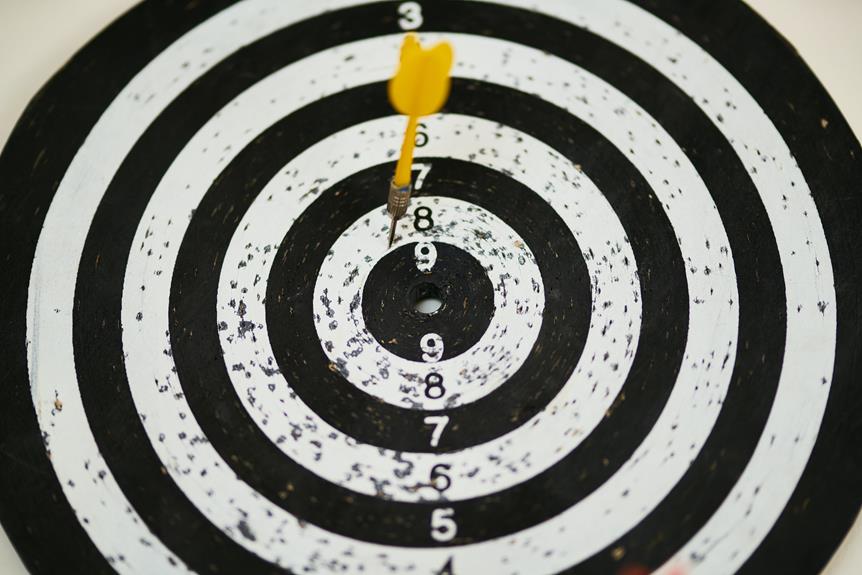In today’s modern world, electronic devices have become an integral part of our lives. We use them for work, communication, entertainment, and even for tracking our health. However, the excessive use of these devices has led to a significant impact on our sleep quality and overall health.
Studies show that the blue light emitted from electronic devices such as smartphones, laptops, and tablets disrupts our circadian rhythm by suppressing the production of melatonin – the hormone responsible for regulating sleep-wake cycles. This disruption can lead to difficulty falling asleep, staying asleep or waking up early in the morning feeling unrefreshed.
Furthermore, the constant exposure to social media notifications and emails during late hours can cause stress and anxiety which also negatively affect sleep quality. In this article, we will delve into how electronic devices affect our sleep quality and overall health and discuss some strategies that can help mitigate their impact.
The Science Behind Circadian Rhythm
Circadian disruption is a term used to describe the disturbance of our natural sleep wake cycle. This cycle determines when we feel awake and alert and when we start to feel sleepy. Our bodies are designed to follow this cycle, which is regulated by the release of certain hormones at specific times.
When electronic devices are used before bedtime, the blue light emitted by their screens can interfere with our natural circadian rhythm. This light mimics daylight and tricks our brain into thinking it’s daytime instead of nighttime. As a result, the production of melatonin, a hormone that helps us fall asleep, is delayed or suppressed.
This disruption can have negative effects on our overall health, including decreased cognitive function, mood changes, and an increased risk for chronic health conditions such as obesity and diabetes.
It’s important to understand how our bodies work in order to maintain good sleep hygiene and protect our health from the negative impacts of electronic devices on our sleep quality.
Blue Light And Melatonin Suppression
Do you struggle with falling asleep at night? With the increased use of electronic devices, it’s no surprise that many of us do. One of the main culprits behind this issue is blue light.
Blue light is emitted from screens on devices such as smartphones, tablets, and laptops. This type of light has been shown to suppress the production of melatonin, a hormone that regulates sleep.
Blue light filters can be an effective solution to combat the negative effects of blue light on our sleep quality. Many devices now have built-in blue light filters that can be turned on during nighttime use. Additionally, there are various third-party apps and screen protectors available that filter out blue light.
By reducing exposure to blue light before bedtime, it may be easier for your body to produce melatonin and fall asleep naturally. In addition to implementing blue light filters, establishing a bedtime routine can also improve sleep quality.
A consistent routine signals to your body that it’s time to wind down and prepare for sleep. This routine can include activities such as reading a book or taking a warm bath. By creating a relaxing environment before bed and avoiding electronic device use, you may notice an improvement in the quality of your sleep.
Overall, the negative impact of electronic devices on sleep quality cannot be ignored. By utilizing blue light filters and establishing healthy bedtime routines, we can take steps towards improving our overall health and well-being without sacrificing technology usage entirely.
The Effects Of Social Media And Email Notifications
Scrolling through social media and constantly checking email notifications has become a daily habit for many people. However, this seemingly harmless behavior can have negative effects on both mental health and productivity.
Research has shown that the use of social media can lead to increased feelings of anxiety, depression, and loneliness. This is due to the constant comparison with others’ curated online lives and the pressure to present oneself in a certain way. Additionally, the blue light emitted by electronic devices can disrupt sleep patterns, leading to fatigue and further exacerbating these mental health implications.
Not only does social media affect mental health, but it also has consequences on productivity. Constantly checking email notifications or scrolling through Instagram during work hours can significantly decrease focus and efficiency. This leads to wasted time and lower quality output, ultimately hindering success in professional endeavors.
Strategies For Improving Sleep Quality
Sleep hygiene is a crucial factor that influences the quality of sleep. It includes various practices and habits that individuals can adopt to improve their sleep patterns. Some of these practices include maintaining a consistent sleep schedule, avoiding caffeine and alcohol consumption before bedtime, creating a comfortable sleep environment, and limiting the use of electronic devices in the bedroom.
Relaxation techniques are also effective strategies for improving sleep quality. These techniques help individuals reduce stress levels, which is a critical factor that affects sleep. Examples of relaxation techniques include deep breathing exercises, meditation, progressive muscle relaxation, and visualization. Engaging in relaxing activities such as reading a book or taking a warm bath before bedtime can also help individuals fall asleep more easily.
Incorporating good sleep hygiene practices and relaxation techniques into daily routines can significantly improve an individual’s overall health and well-being.
Adequate sleep is essential for physical and mental health, and poor sleeping patterns have been linked to various health problems such as obesity, diabetes, hypertension, depression, and anxiety disorders. Therefore, it is vital to prioritize good sleep habits and adopt relaxation techniques to ensure optimal health outcomes.
Long-Term Health Implications Of Electronic Device Use
As we discussed in the previous section, there are several strategies that can be employed to improve sleep quality. However, one major factor that often goes unnoticed is the excessive use of electronic devices.
The blue light emitted by screens can disrupt our circadian rhythm and make it difficult to fall asleep. Furthermore, scrolling through social media or watching TV late at night can keep our minds active and make it harder to relax.
Screen time limits are a great way to combat these issues. By setting boundaries on how much time we spend staring at screens, we can reduce the amount of blue light exposure we receive and give our brains a chance to wind down before bed.
Additionally, taking periodic breaks from technology altogether with a digital detox can be incredibly beneficial for our overall health. This allows us to reconnect with nature, spend quality time with loved ones, and engage in activities that don’t involve screens.
It’s important to recognize the long-term health implications of electronic device use as well. Research has shown that excessive screen time is linked to an increased risk of obesity, poor mental health, and even premature death.
By making small changes like implementing screen time limits and participating in regular digital detoxes, we can protect ourselves from these negative outcomes and enjoy a healthier future.
Frequently Asked Questions
Can Electronic Devices Affect The Quality Of Our Dreams?
Do electronic devices affect the quality of our dreams?
Research shows that they may disrupt REM sleep, which is crucial for dream patterns. REM sleep is when our brains are most active and our bodies are paralyzed to prevent acting out dreams.
However, exposure to the blue light emitted by screens can suppress melatonin production, making it harder to fall asleep an
d stay asleep. This can lead to less time spent in REM sleep and a decrease in dream frequency and vividness.
So while electronic devices may not directly impact the content of our dreams, they can certainly affect how well we’re able to experience them.
How Long After Using An Electronic Device Should We Wait Before Going To Bed?
When it comes to electronic device exposure and sleep, it’s important to consider sleep latency.
Research suggests that exposure to electronic devices before bed can make it harder for individuals to fall asleep.
In fact, the blue light emitted by these devices can suppress melatonin production, leading to delayed sleep onset.
Experts recommend limiting electronic device use at least one hour before bedtime to avoid this issue.
By taking steps to reduce device exposure before bed, individuals may be able to improve their sleep latency and overall sleep quality.
Is It Better To Use Electronic Devices With A Blue Light Filter Or To Avoid Them Altogether?
When it comes to using electronic devices, many people are concerned about the potential impact on their eye health.
One solution that has gained popularity is using a blue light filter.
While this can be effective in reducing eye strain and fatigue, it’s important to note that it may not completely eliminate the risk of damage from prolonged screen time.
Ultimately, the best course of action may be to limit device use before bedtime and take frequent breaks throughout the day.
Can Listening To Music Or Podcasts On Electronic Devices Affect Our Sleep Quality?
Listening to music or podcasts on electronic devices can have a significant impact on our sleep quality.
While it may seem like a relaxing way to wind down before bed, it can actually lead to brain stimulation and mental fatigue.
This is because our brains are still processing the information from the audio, even when we are asleep.
As a result, we may experience disruptions in our sleep cycle, leading to poorer sleep quality overall.
It’s important to limit the use of electronic devices before bed and opt for more calming activities instead.
Are There Any Benefits To Using Electronic Devices Before Bed?
Before bed, many people turn to their electronic devices for relaxation or productivity.
While there are some pros to using these devices before bed, there are also cons that should be considered.
On the one hand, using electronic devices can increase productivity by allowing individuals to catch up on work or complete tasks they didn’t have time for during the day.
On the other hand, using these devices can also disrupt rest by stimulating the brain and interfering with sleep quality.
Ultimately, it’s important to weigh the potential benefits and drawbacks of using electronic devices before bed in order to make an informed decision about how to balance productivity and rest.
Conclusion
In conclusion, electronic devices have a significant impact on our sleep quality and overall health. As someone who enjoys scrolling through social media before bed, I now understand the importance of limiting my screen time to improve my sleep hygiene.
Waiting at least an hour before bedtime to use electronic devices and using blue light filters can also make a big difference. Although it may be tempting to listen to podcasts or music before bed, it’s important to recognize that this can also affect our sleep quality.
By implementing healthy habits and reducing our reliance on technology before bed, we can improve our physical and mental well-being. While technology has undoubtedly revolutionized our lives in many ways, it’s crucial that we prioritize self-care and establish boundaries around its use for optimal health outcomes.




